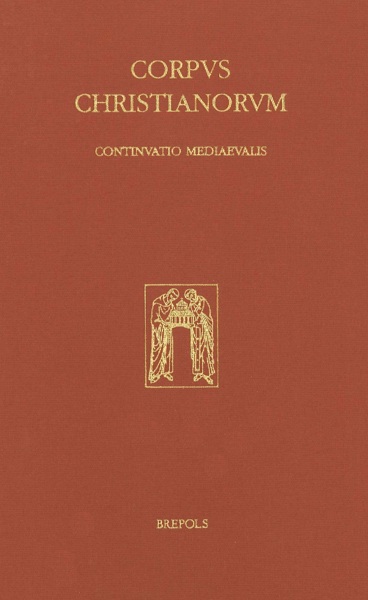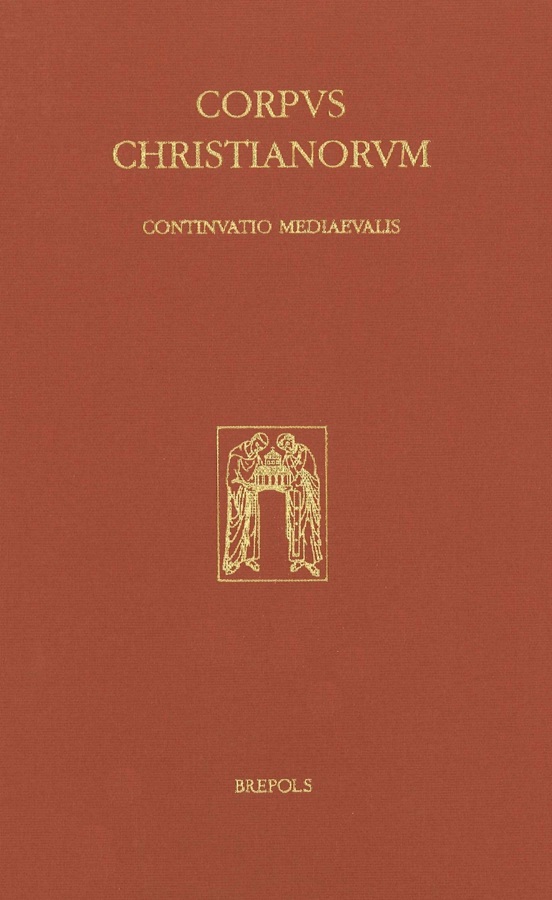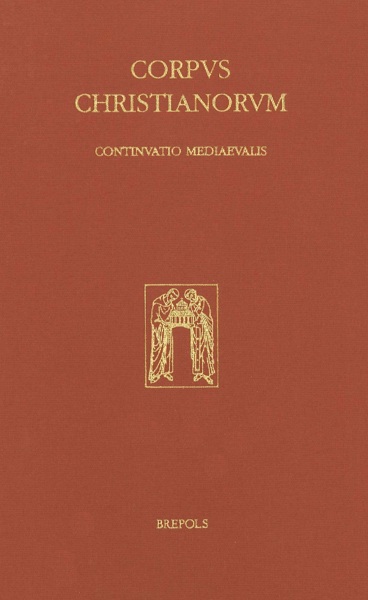
Raimundus Lullus
Opera latina XL (76-79)
Parisiis anno 1298 composita
Fernando Domínguez Reboiras, Jordi Gayà Estelrich (eds)
- Pages: lxxxv + 610 p.
- Size:155 x 245 mm
- Illustrations:1 col., 3 tables b/w.
- Language(s):Latin, Spanish, German
- Publication Year:2024
- € 465,00 EXCL. VAT RETAIL PRICE
- ISBN: 978-2-503-60638-5
- Hardback
- Available
Critical edition of Ramon Lull's op. 76-79, written in Paris in 1298
Fernando Domínguez Reboiras, now retired, worked at the Raimundus-Lullus-Institut (Albert-Ludwigs-Universität Freiburg) from 1970 to 2008. As editorial manager of the ROL series, member of the editorial board and editor of several ROL volumes he has contributed substantially to the CC CM series.
Jordi Gayà Estelrich is currently a professor at the Superior Institute of Religious Sciences in Mallorca (ISCR) and at the Faculty of Theology of Catalonia, Ateneu Universitari Sant Pacià, Barcelona. He has worked on the critical edition of the Latin works of Ramon Llull, among them those published in vol. XX of the ROL series (CC CM, 113).
During his second stay in Paris (1297-1299), Ramon Llull developed an extraordinary literary activity writing 16 works, some of them of considerable length. His attention was once again focused on the presentation of the Art, either to summarize it in accordance with the new changes he had introduced (beginning with the Tabula generalis, op. 53, ROL XXVII), or to present it as a method of renewal of the particular sciences (astronomy and geometry) or as an instrument in the debate on the errors condemned by the bishop of Paris in 1277. The four works presented in this volume are examples of this activity.
The Disputatio Eremitae et Raimundi (op. 76) not only represents Llull's closest approximation to the university style of studying the science of theology, based on the Sentences of Peter Lombard, but also the most radical application of his Art as opposed to any discussion fed by the exegesis of "auctoritates".
In Arbor philosophiae amoris (op. 77), on the other hand, the application of the Art follows the intent of his previous Ars amativa boni (op. 46, ROL XXIX), thus revealing the intimate connection between the austerity of the artistic language and the exuberance of the contemplative language, the true hallmark of Lullian mysticism.
The Consolatio Venetorum (op. 78) illustrates the innovative approach that the Lullian project offers for the moral and political life of the Church. There is no medieval Latin manuscript tradition of the Cantus Raimundi (op. 79).
Vorwort
Introducción general (Jordi Gayà Estelrich)
Elenchus codicum (Fernando Domínguez Reboiras)
Opera et catalogi
Textus
Disputatio Eremitae et Raimundi (op. 76) (Jordi Gayà Estelrich)
Arbor philosophiae amoris (op. 77) (Fernando Domínguez Reboiras)
Consolatio Venetorum (op. 78) (Fernando Domínguez Reboiras)
Cantus Raimundi / Cant de Ramon (op. 79) (Fernando Domínguez Reboiras)
Indices
Index locorum S. Scripturae
Index nominum
Index titulorum operum Raimundi





